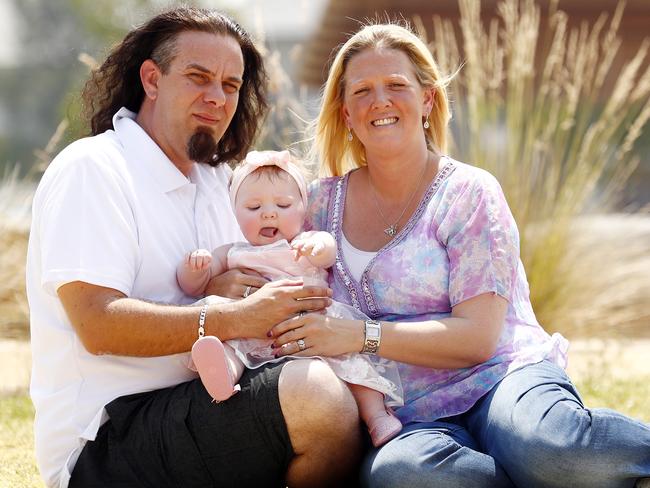Men also have a biological clock ticking on fertility study shows
Infertility has long been blamed on women ignoring their biological clock but it turns out men have one too — it fertility experts warn it ticks a little slower but the alarm is just as loud.

NSW
Don't miss out on the headlines from NSW. Followed categories will be added to My News.
Men also have a biological clock that ticks a little slower on their fertility but its alarm rings just as loud, a new study has shown.
Scientists have analysed more than 40,000 sperm samples over a 10-year period and estimated the male biological clock sounds the alarm around the mid-50s.
Male fertility specialist Dr Derek Lok from fertility clinic Genea said the impact of ageing is not as extreme in men as it is in women but it is a significant issue that has been overlooked.
“Women are very aware that their chance of conception declines sharply at 35, what this study shows is that men’s procreating years are a lot longer,” Dr Lok said.

The study, about to be published and recently presented at the recent Fertility Society of Australia conference, found that male fertility starts to slip in their mid-40s.
“Sperm concentration and motility, it slows 10 per cent in the 40s but toward the 50s, 20 per cent and in the late 50s by 30 per cent, so three times more likely to have problems in their late 50s than before,” Dr Lok said.
MORE FROM JANE HANSEN
Warning issued on anaesthetic drug linked to death
Foetus ‘thrown out’ after miscarriage nightmare
“As men get older the sperm DNA can become more fragmented, which can lead to lower conception rates and higher miscarriage risks. Over 55, this fragmentation becomes very pronounced,” said Dr Lok.
Unlike women who are born with a quota of eggs, men produce sperm daily, so environmental and lifestyle factors can also play a large but often overlooked role.
“If there is a fertility issue it is usually it is the females that are sent to us first, and a lot have already gone through a lot of unnecessary investigation like laparoscopy,” Dr Lok said.

“In reality, 40 per cent of the couples who are going through IVF, the male factor is one of the major reason they need assistance.”
When Jamie and Mark Hogan married in 2008, they immediately started trying for a family but nothing happened. Everyone thought Jamie, 35, had fertility issues but it wasn’t until last year that they discovered Mark, 36, had a low sperm count.
“They were saying it was my anxiety and me stressing out, and putting strain on my body, so I went and saw a specialist and she said she could not find anything wrong with me, so we were referred to Genea,” Mrs Hogan said.
“We met Dr Lok and he did the tests on Mark and I and that is when we found out it was actually Mark.”
The amount of sperm produced by the average ejaculate is between 15 million to 250 million.
“Sperm production is a very sensitive process, for example, if you have hypertension, or exposure to toxins like smoking or a single exposure to infection leading to fever, it can shut down sperm production a great deal,” Dr Lok said.

“Lifestyle issues are very important too, lack of exercise, obesity, it can affect the body’s hormone which can affect the sperm production in a serious way as well.”
Mr Hogan, 36, changed his lifestyle.
“I was smoking and drinking energy drinks and that didn’t help as well, so I changed my diet and exercise and, with IVF, we were able to get Piper,” he said.
The couple from Bargo want another child but they will do it sooner rather than later due to the biological clock factor.
“I’d never thought about biological clock before but we may not have got this result if we had waited longer,” Mr Hogan said.
They would also like to address the taboo around male infertility
“Since it has happened, a few of the guys at work have had issues and they have come and asked me. I don’t have any embarrassment, it’s a natural thing,” Mr Hogan said.
Originally published as Men also have a biological clock ticking on fertility study shows


